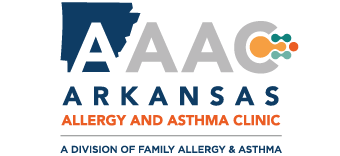Food Allergy
Keep You and Your Family Safe When You Have Food Allergies.
If you or a loved one has a food allergy, the best thing you can do is to have an allergy management plan in place. While there is no cure for food allergies, avoidance, education, and preparedness are the keys to manage food allergies. The more precautions you take to avoid triggering foods and maintain easy access to care, the less likely your allergy is to become a threat.
The most common food allergies are proteins found in cow’s milk, eggs, peanuts, wheat, soy, fish, shellfish, and tree nuts. Most allergy symptoms occur within 2 hours at the most after contact. In recent years, a new type of food allergy called alpha-gal has emerged, and the symptoms may show 4-8 hours after someone with the allergy eating beef, lamb, pork, and venison.
Food allergies are often confused with adverse food reactions. An adverse food reaction, such as lactose intolerance, can cause gastrointestinal issues. A food allergy, on the other hand, involves the immune system. Symptoms of a food allergy include hives, shortness of breath, swelling of the tongue and throat, and can lead to a severe allergic reaction.
Our allergy doctors can help identify the foods to which you are allergic. It may be helpful to keep a journal of the foods you eat and the symptoms that appear.
We recommend keeping these food allergy tips in mind:
- When food is made or prepared by someone other than yourself, always be sure to ask about the ingredients.
- Carefully read food labels on what you buy. In the United States, major allergens must be listed on labels, but it is not always a full list of ingredients.
- Carry and know how to use auto-injectable epinephrine and antihistamines to treat emergency reactions. Teach those who are close to you how to use epinephrine. If a reaction occurs, have someone take you to the emergency room, even if symptoms subside.
The allergy specialists at Arkansas Allergy & Asthma Clinic offers treatment and support for all adult and childhood allergies. Our allergists will perform a medical review and allergy testing to determine which foods, if any, will trigger your allergic symptoms.
Schedule an appointment today with one of our board-certified allergists, and move towards a safe, healthier tomorrow.
